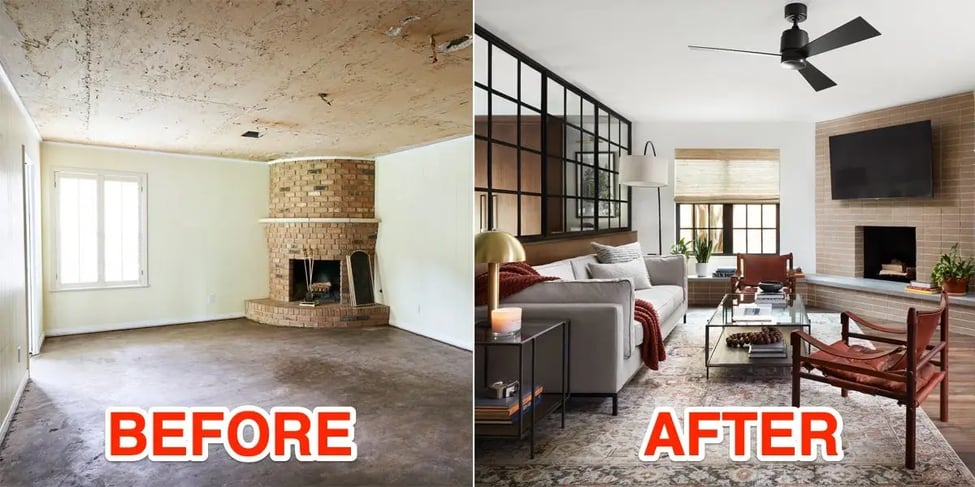You’re deep into the Toronto house hunt. Prices are up, options are down, and just when you’re about to give up, you find the one. It’s not perfect, but it’s close — minus the “minor updates” the listing casually mentions.
The description?
✨“Endless potential.”
✨“A blank canvas.”
✨“Perfect for someone with a vision.”
Let’s be real: they’re talking about renovations. And they’re probably bigger (and more expensive) than you think.
What Renovations Actually Cost in Toronto
Here’s the truth behind the fluffy listing language:
The “Just Cosmetic” Fix
Full interior paint: around $10K
New floors: $5K to $20K depending on what and where
Swapping fixtures: $2K to $10K
💸 Total: $17K – $40K
The “Needs Some Love” Package
Kitchen facelift: $15K–$25K
Bathroom update: $10K–$20K
Add the cosmetic stuff above
💸 Total: $42K – $72K
The “Big Project” Home
Full kitchen gut: $25K–$50K
Two full bathroom renos: $20K–$40K
Paint, floors, fixtures: $17K–$27K
💸 Total: $62K – $117K+
And that’s assuming there are no unexpected problems (there always are).
Will You Get That Money Back?
Depends. Here’s where renos can pay off:
Kitchens done well often return 75%–100% of their cost when you sell
Fresh paint makes a home feel newer and has a great return for the price
Flooring upgrades (especially switching out carpet) can add real value
But if the cost of renos outweighs the potential resale value? It’s probably not the right move.
The Hidden Stuff That Blows Budgets
Renovating isn’t just about what you see. Here’s what often gets missed:
Outdated electrical: Upgrading can cost $5K–$15K
Roof issues: A new roof is $8K–$12K
Foundation problems: This one’s expensive and sneaky
Permit delays: Especially in Toronto
Paying rent and a mortgage while you wait to move in
These aren’t rare problems — they’re common.
Neighborhood Matters. A Lot.
If you're buying in a high-demand area, your renos could pay off nicely.
But in a neighbourhood where updated homes don’t sell for much more than originals? Don’t sink $60K into upgrades if the resale boost is only $30K.
Red Flags to Watch for
These aren’t “quirks” — they’re warning signs:
🚩 Big cracks in walls or basement
🚩 Strange electrical setups (especially older homes)
🚩 DIY additions that don’t look legal
🚩 Mold, water damage, or signs of long-term leaks
🚩 Too many outdated systems at once
If more than one of these shows up? You’re not buying a deal — you’re buying a money pit.
Do the Math Before You Fall in Love
Here’s your formula:
Purchase price
Realistic reno budget
Any extra costs (permits, rent, holding time)
= Your actual investment
Then check: do other homes in that area support that final number? If not — walk away.
When a Fixer-Upper Is Worth It
✅ The discount on the price is real
✅ The neighbourhood supports resale value
✅ You’ve got a contractor or experience
✅ The structure and systems are solid
✅ You’ve got the timeline and patience
One Final Tip from @schotthomes
Before you put in an offer: get an inspection.
It might cost a few hundred bucks, but it can save you from a $50,000 mistake. And if you’re not sure what you’re looking at, we’re happy to walk through the numbers with you.
In a changing market like Toronto’s, a fixer-upper can still be a win — but only if the math makes sense.

